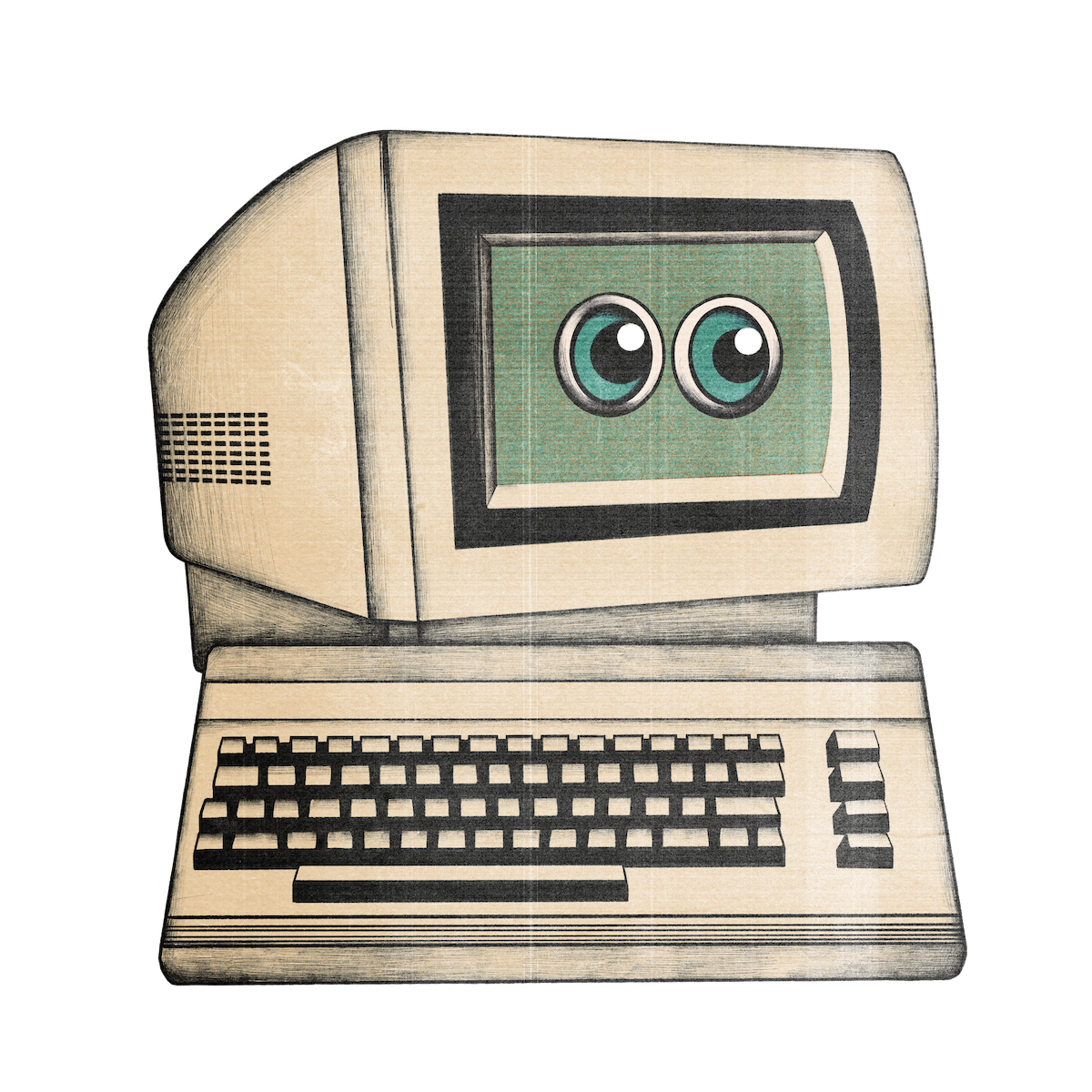Mel

Short story
Mel is an 83 year old Python developer who builds conversational chatbots for fun. I showed him the ChatGPT API last week, and his reaction was beautiful, pure, and appropriate. If you read nothing past this line, watch the 90 second video below.
Long Story
Pre-pandemic, Twilio would do a big conference called SIGNAL in San Francisco every year. At our peak in 2019 we had 5,000 attendees. SIGNAL was a spectacle that orientated and consumed the company for half the year. In the run up to SIGNAL, we also did regional road shows called "Engage" where Jeff, our CEO, would get up on stage in front of a few hundred people to tell the story of Twilio.
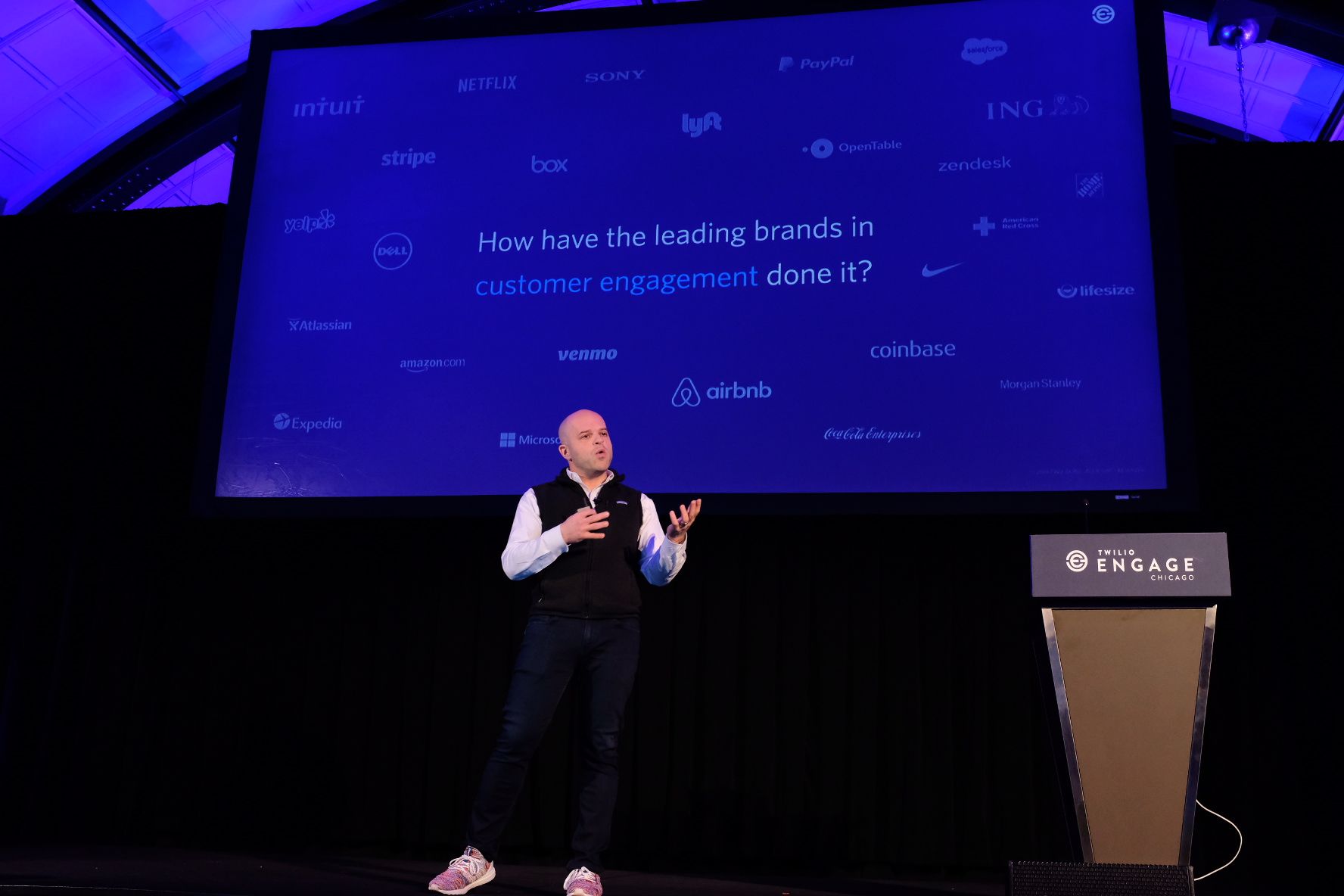
Twilio's motto is, "We can't wait to see what you'll build" – a sentiment Jeff wove throughout his keynote. And when Jeff stepped off stage at NYC Engage in 2017, Melvyn Feuerman was waiting for him at the bottom of the stairs, ready to show Jeff what he had built.
Mel was, at the time, a 78 year old developer who had recently retired after forty years of service at CitiBank. Mel discovered Twilio and Python in retirement, and his primary hobby ever since has been building chatbots. His pride and joy is named Hal 9000, an homage, of course, to 2001: A Space Oddessy. Hal used Python and regular expressions to implement Eliza, a natural language processing program developed by Joseph Weizenbaum in the mid 1960s. Eliza plays the part of a psychoanalyst and gives the appearance of empathy mostly by reframing your statements into the form of a question and asking vague affirming questions like, "Why do you feel that way?"
The first time I saw Mel's code was a few months after Engage. Jeff was delighted by Mel's demo and introduced him to Ricky Robinett and I who were on the Developer Network team out of NYC. Mel swung by our office on 17th and 6th, and we're walking over to the Hollywood Diner for lunch he says to me:
"I wanted to ask you a question about my code."
"Of course. Did you bring your laptop?"
"I don't own a laptop."
"Well... how are we going to look at your code?"
"I brought my code."
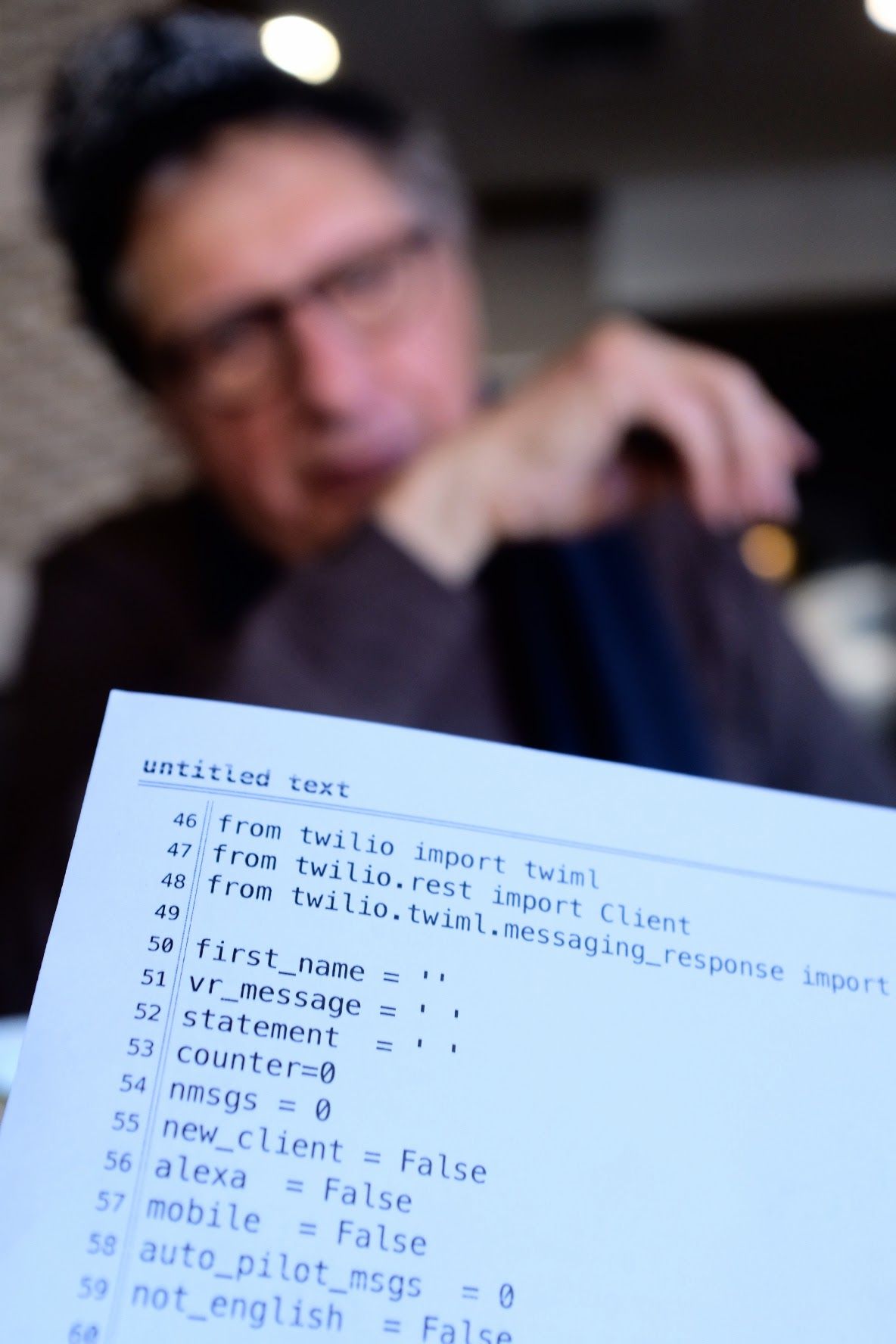

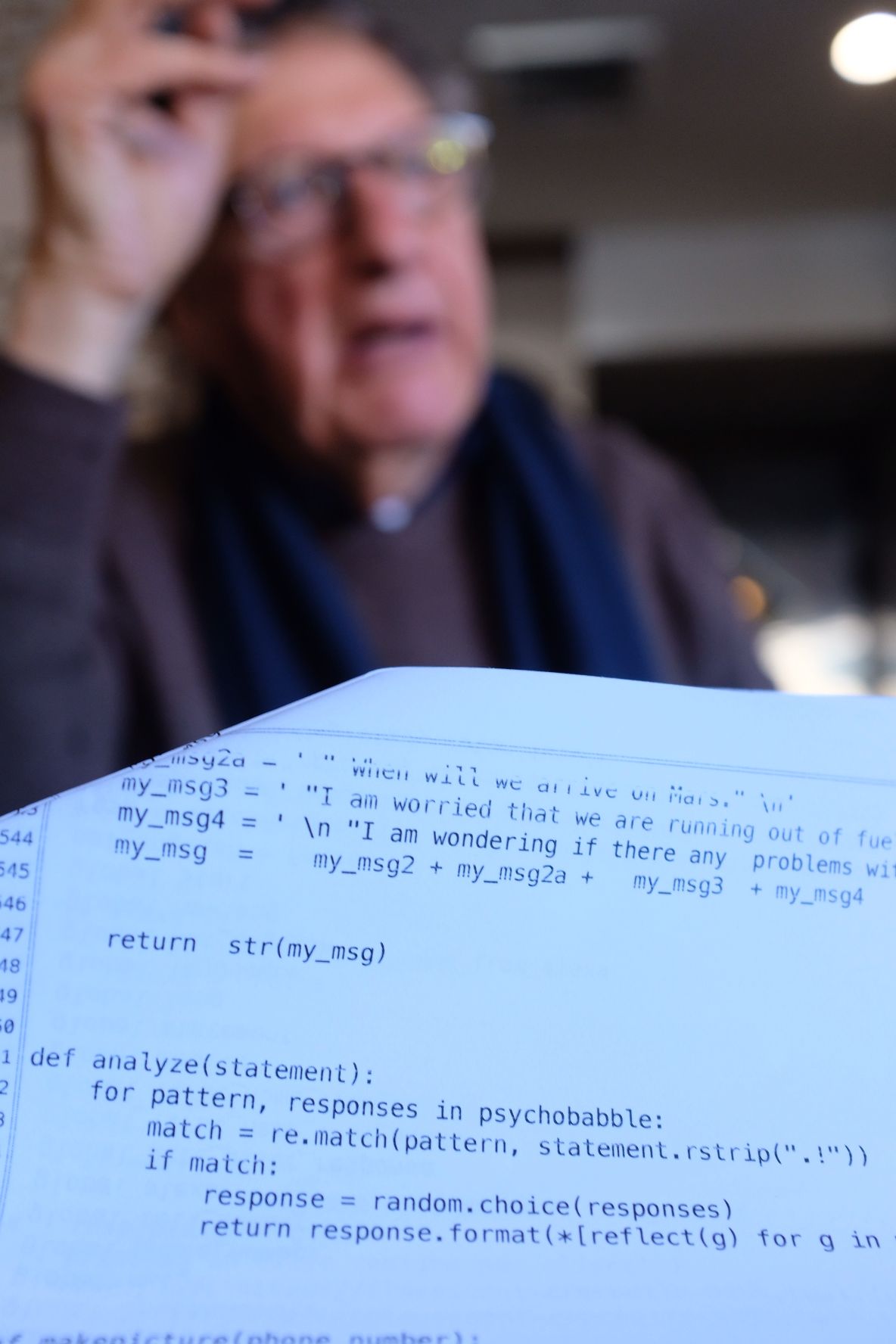
Mel soon become a fixture at our Twilio NYC developer community events. He participated in our First Look Hackathons where he'd build on new products, demo to the crowd, and give feedback on what could be better. He did a photoshoot in Chelsea for a project celebrating the diversity of our developer community. He spoke at our events, telling folks what it was like to work on ATM software 30 years ago ("What's the first test you write for an ATM? Withdrawing a negative amount.")
Wherever he went, Mel was showing off Hal 9000.

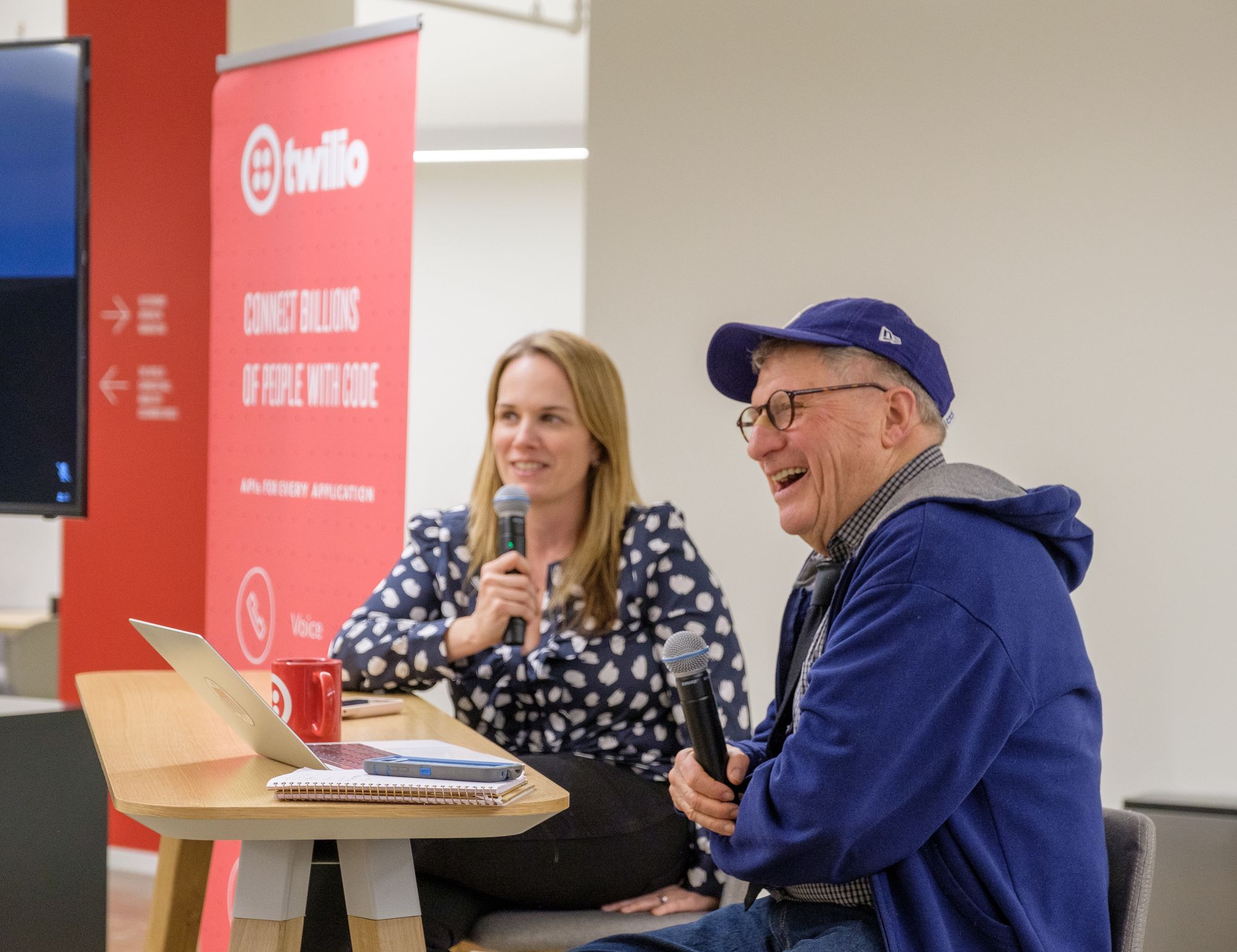

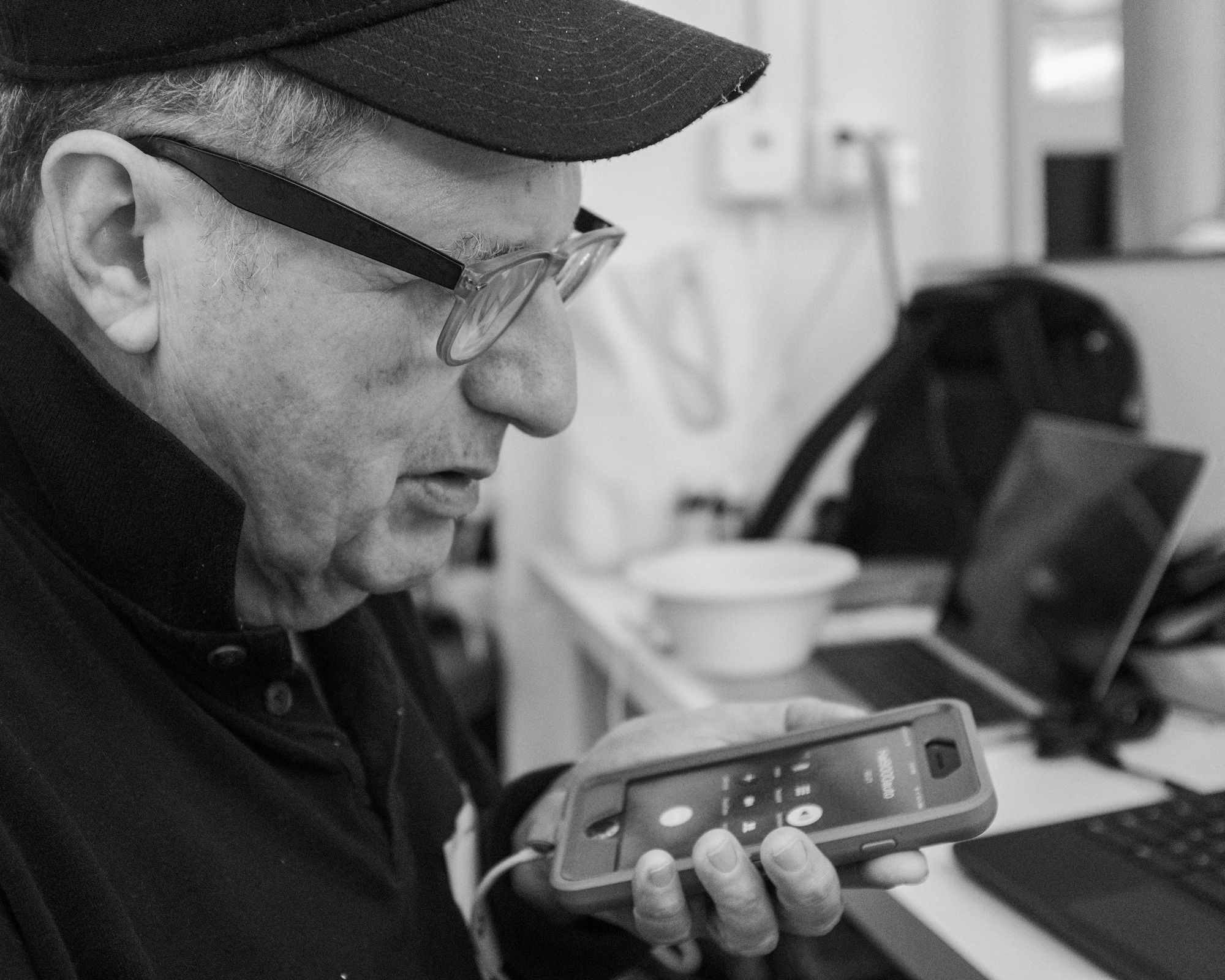

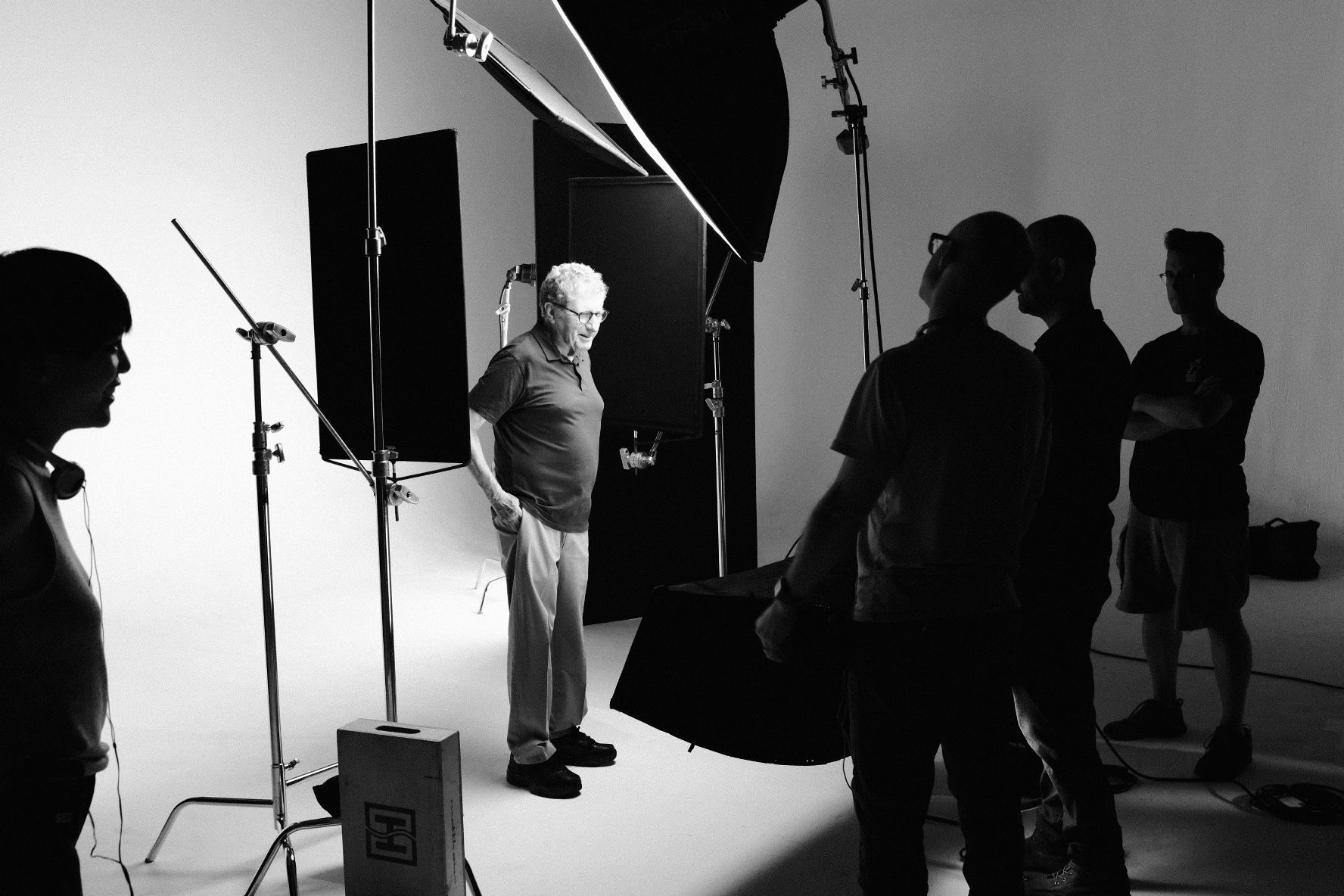

It's important to note that Hal 9000 has grown to be much more than just an Eliza implementation. Mel ported it to WhatsApp and it's now a full-blown multimedia experience: sending WAV, GIF, and MOV files depending on how the conversation goes. Mel's recently implemented a language tutoring feature thanks to clever uses of Google Translate and voice-to-text APIs.
During the pandemic, a few of us set up regular remote pairing sessions with Mel to chat about his code, help him out when he got stuck, and to hear his endless ideas on ways different organizations should be using Twilio. Last summer I went out to Mel's home in Long Island and finally – after years of Zoom – got to see his office in three dimensions.
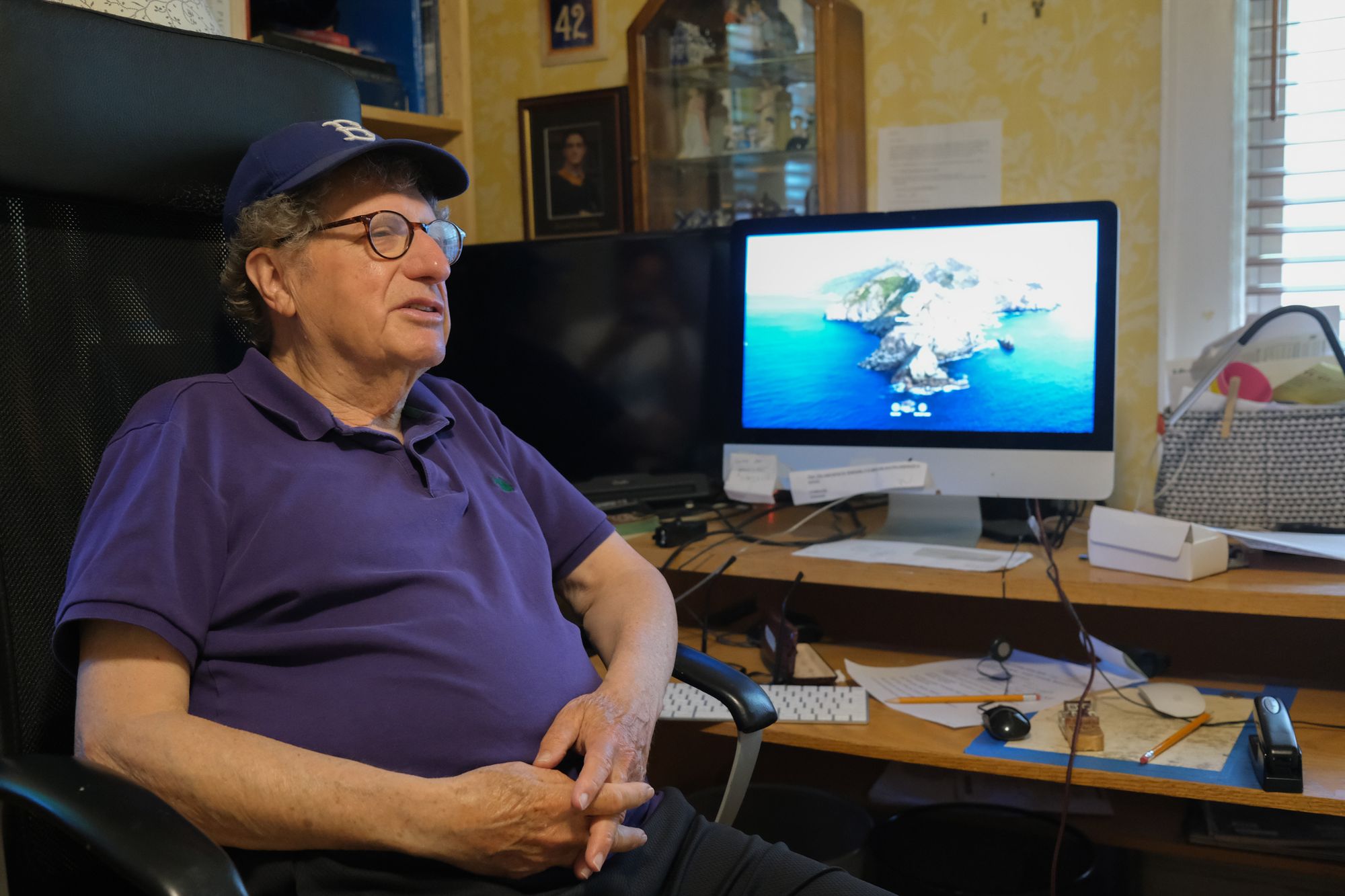
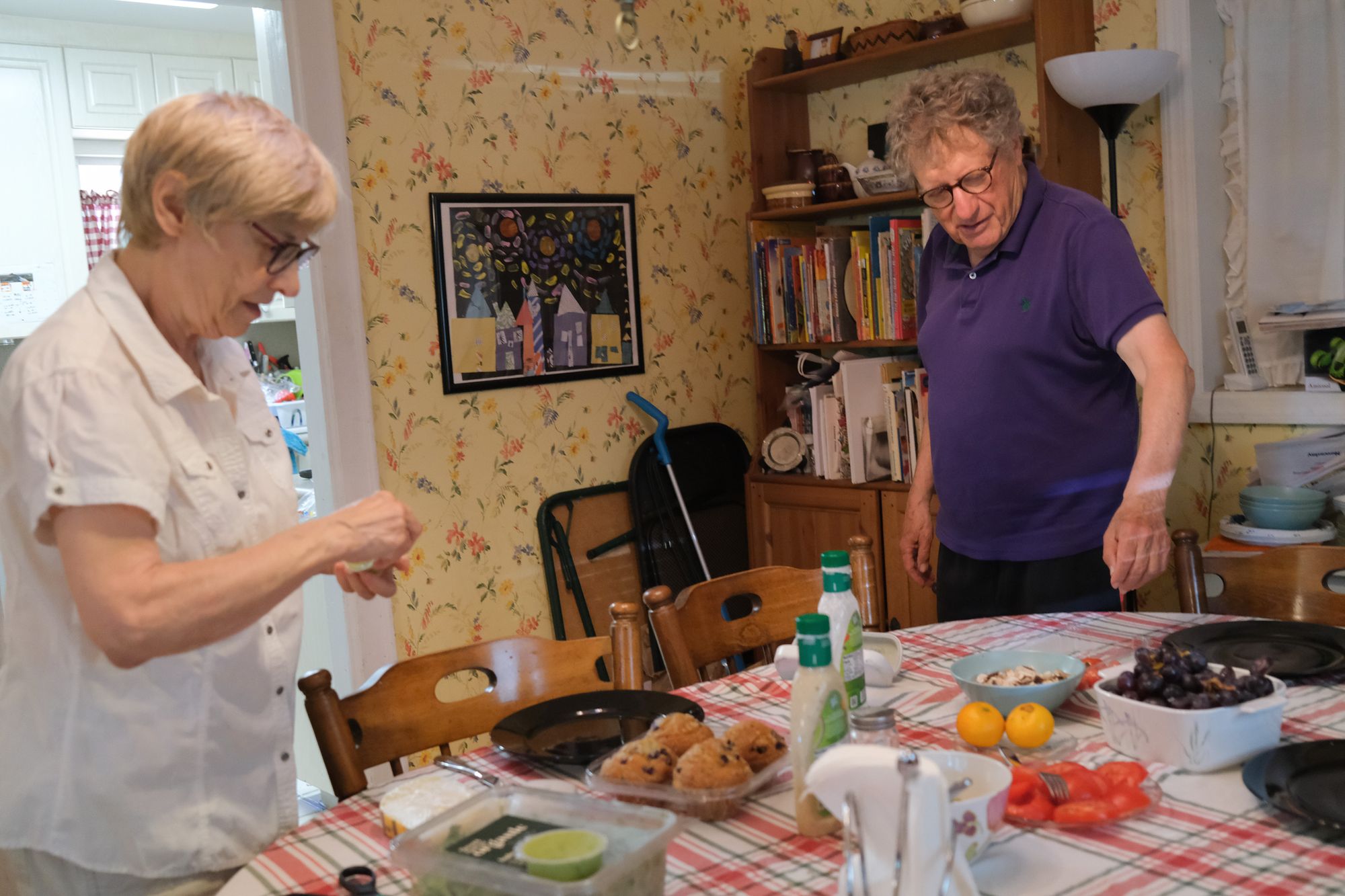
Mel and I still hop on Zoom every week or two. Last week I asked if he'd played with the ChatGPT API yet. He said no, and asked me to show him my code. I fired up what's basically a "hello world" with ChatGPT and Python on the command line. The program starts by asking what type of assistant you want to make. Mel suggested a "Freudian Psychoanalyst."
The clip below is 10 minutes into that conversation with our psychoanalyst, when Mel decides to ask a context question: if it remembers the reason he gave for coming in today at the start of the conversation. Mel's reaction to ChatGPTs response is one of the most genuine and appropriate reactions I've seen yet to this technology, and it's coming from someone who's been writing code for fifty years, and spent the last five years thinking about conversational chatbots.
If you want to create your own command line chatbot, check out:
